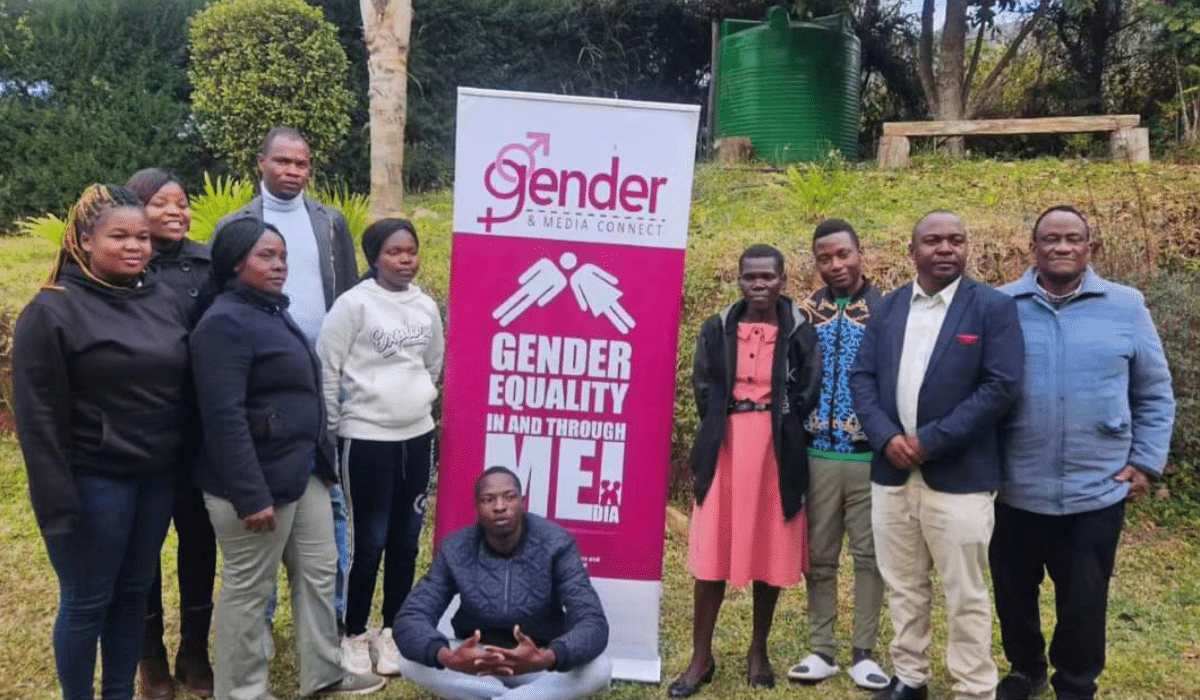HARARE, Zimbabwe — In the run-up to Zimbabwe’s Aug. 23–24 harmonized elections, Gender and Media Connect, an organization advocating for a gender-sensitive and inclusive media environment, trained broadcasters from six of the country’s 14 newly licensed community radio stations about gender sensitivity and inclusivity in news reporting, programming and journalist deployment.
Informed by a 2023 study on the status of gender mainstreaming policies and practices on community media platforms — especially gender dynamics in governance, balanced assigning, news and program content — GMC embarked on vigorous pre-election training. The organization was primarily motivated by the following baseline finding: “Community radio stations are generally aware of the need to have gender equality, although responses indicated that they do not have necessary editorial policies in place to ensure that this happens in practice. After initial hesitation to be part of community radios at their inception, many women later joined.”
The training, involving an average of 15 participants per station, outlined editorial policies and newsroom house styles and dealt with entrenched cultural stereotypes to remove or reduce unprogressive practices and move towards gender-responsive journalism in time for the elections.
Deep-rooted
Different broadcasters mentioned deep-rooted cultural discrimination against women in their remote communities, with one enthusiastically remarking, “This election reporting training by GMC has really equipped us with methods for careful, gradual change in eliminating the undermining of women using newly gained radio reporting skills and knowledge.”
The training, involving an average of 15 participants per station, outlined editorial policies and newsroom house styles and dealt with entrenched cultural stereotypes.
GMC’s Nyarai Kampilipili, who coordinated the training visits to radio stations selected from different provinces, said, “Our trainers prepared the community radio station broadcasters to properly balance how they assigned reporters and scheduled news and programs, and to brighten their gender lenses when covering voters, selecting commentators-cum-analysts and news sources and to use gender-sensitive language.”
As one of the trainers, I took the radio newcomers through the Zimbabwe Electoral Commission media guidelines’ constitutional and statutory provisions and regional and continental gender policies to enrich their knowledge and contextualization when reporting about the women’s quota system and proportional representation in Parliament.
Some sessions used recorded role play to sharpen effective interviewing, reporting and talk show moderating techniques using gender-sensitive and election-related topics. Others explained ethical and safety standards so broadcasters had no excuses for glaring or even subtle gender discrimination during election reporting on their radio stations.
GMC Director Patience Zirima indicated that they would evaluate the impact of their pre- and post-election gender-sensitization training programs among community radio stations and other media with a view to strengthening them for future elections and other activities.
The author is a Zimbabwean media consultant and radio trainer.
More stories about Zimbabwe
Zimbabwe community stations form association

